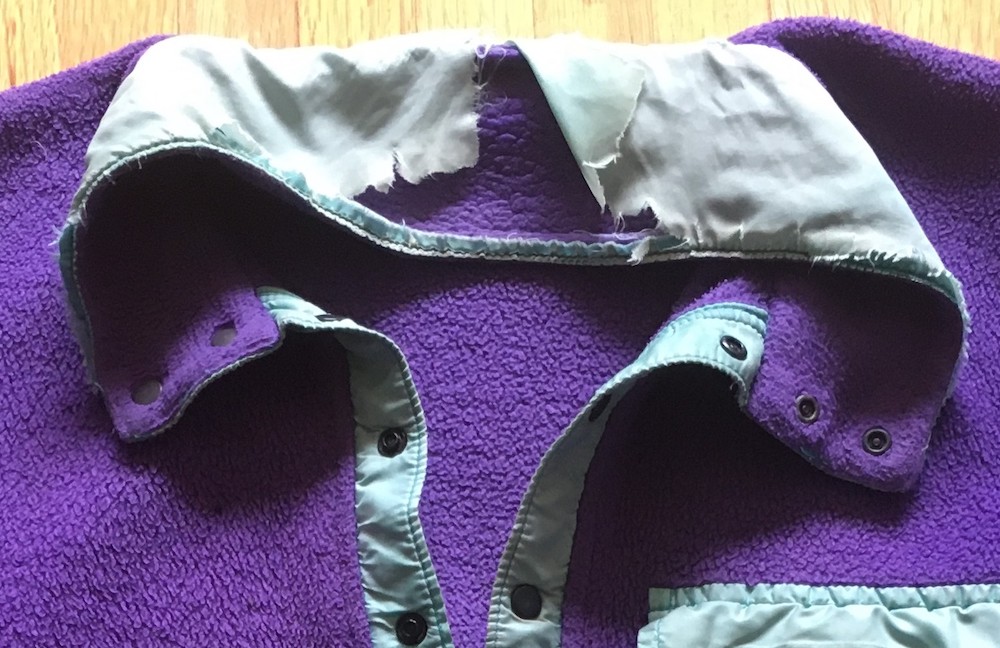Can you love a jacket, a frying pan, a broom? Can that love help save the planet?
The Tyee thinks it can, and we want to see the objects of your affection — in drawings, photographs or an epic ode to a mangy old sweater.
J.B. MacKinnon’s new book The Day the World Stops Shopping makes the argument that a radical reassessment of our relationship with our things is urgent if we want to continue to live on a finite planet. “The 21st century has brought a critical dilemma into sharp relief: we must stop shopping, and yet we can’t stop shopping,” says MacKinnon. We are using up the Earth’s resources at a rate 1.7 times faster than they can regenerate. Runaway consumption is fuelling crises from climate change to deforestation, and making the whole world vulnerable to viruses like COVID-19.
Surprisingly, MacKinnon makes the case that living more simply might involve a stronger, not a weaker, attachment to our possessions. Learning to live with less doesn’t need to be a painful sacrifice, it can actually be the start of a beautiful relationship. We can surround ourselves with fewer but better things, keep them for years, and love them for the memories they keep as they earn the patina of age.
So what’s MacKinnon’s object of affection? It’s the sweater in the close-up photo at the top of this piece. Pulling back the lens, here’s the whole thing in all its rustic glory.
“I don't need to say when I got this fleece,” explains MacKinnon, “because the colours say it all. I will say that I wore it for about 10 years before it started to fit, though when I put it on these days, it feels less like clothing than the coat of hair I would have if I were a sasquatch. It's nothing close to as woolly as it once was, yet it keeps me as warm as ever. How can this be? I think it's a mind-body reaction, like a positive kind of triggering: I interpret this sweater as warm. It has 10 spark-holes from campfires. The biggest of these represents a memorable victory: a wet-wood fire I spent two hours building up into a blaze while backcountry camping on Vancouver Island in drenching rain. I've slept in this fleece without a sleeping bag. I've bled on it, spilled beer on it, drooled on it in exhausted sleep. All the buttons still snap, the front pocket still holds things. I've gotten more compliments for this fleece in the past two years than ever before — and I take that as a hopeful sign for the future of human life on Earth.”
Whatever your most cherished possession, please share it with us and your fellow Tyee readers, whether it’s a tool, an item of clothing or something more esoteric — a sword? A catcher’s mitt? A cello? We'll all learn to look more deeply, love much longer and step more lightly upon a planet staggering under the weight of too much stuff!
If you’d like to submit a drawing or another visual medium, send a digital file (a .jpeg or .png) of your Object of Affection to culture editor Dorothy Woodend ([email protected]) with a short note telling us something about it.
If you want to send us just a written ode to your object, please send a short description (60 and 120 words). We may do some light editing to fit with our Canadian Press style guide. Your name is optional.
Deadline for submissions is June 28.
And in the meantime, if you are interested in more about J.B. MacKinnon’s global exploration of living well with less you can watch this recent online Tyee event co-sponsored by Upstart & Crow book company on Granville Island in Vancouver.
Read more: Environment
















Tyee Commenting Guidelines
Comments that violate guidelines risk being deleted, and violations may result in a temporary or permanent user ban. Maintain the spirit of good conversation to stay in the discussion.
*Please note The Tyee is not a forum for spreading misinformation about COVID-19, denying its existence or minimizing its risk to public health.
Do:
Do not: